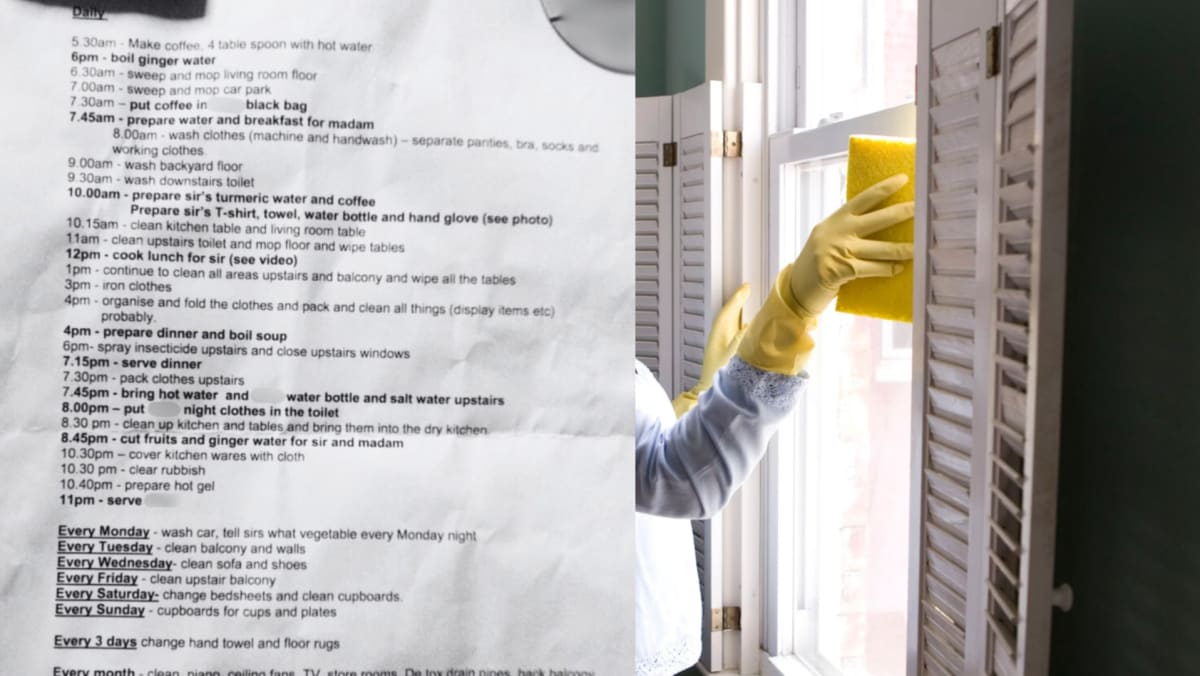While we’ve heard stories of domestic helpers forming close bonds with their employers, some aren’t as lucky.
A migrant domestic worker in Singapore, Ria (her name changed for anonymity), recently shared a photo of her demanding schedule with the Humanitarian Organisation for Migration Economics (HOME), a local non-governmental organisation that champions migrant workers’ rights.
The pic was posted on HOME’s Facebook page, angering many netizens.
Ria’s daily chore list, printed on an A4 sheet of paper (see below), sees her day starting at 5.30am, when she makes coffee for her employer.
Following that is a never-ending list of chores, which include sweeping and mopping the living room floor and carpark, laundry, helping her employers prepare for their workday, cleaning the toilets and other areas of the house, spraying insecticide, and cooking.
She only ends her day after completing her last chore at 11pm.
There are also another set of chores listed at the bottom of her schedule and she’s required to do an extra task each day, like changing the bedsheets and cleaning the cupboards every Saturday.
She also has to clean a whole bunch of things like her employer’s bicycles and gym bag every month.
Ria’s entire day is mapped out with time stamps allocated for each task, but sadly, there isn’t a single window allocated for her to eat her own meals, shower, or even take a short break.
According to HOME, Ria described herself as perpetually exhausted as she is required to adhere to the schedule strictly.
She also doesn’t get enough rest on her day off, which only happens once a month.
“She could only leave the house at 10am after completing chores and had to return by 4pm to resume chores,” said HOME.
Singaporean netizens were shocked by Ria’s schedule, with many agreeing that it was simply “too much for a human being” and that it took away her “basic rights”.
“Singaporean workers should be given the same treatment by employers as well. Then they will learn how to be a human again,” asserted one netizen.
It gets more upsetting: A few commenters, who presumably worked or are working in Singapore as domestic helpers, also shared that they are no strangers to such treatment.
One shared that her employer “gets cross” if they forget to do certain things, but yet she has to remind them to pay her every month. The irony is not lost on us.
According to a report by CNA, some employers attempt to control how much food their helpers eat.
HOME has advocated for migrant domestic workers to be included in the Employment Act, where their working hours will be fairly regulated under fair terms — just like how it is for the rest of us.
For real though: how did some of us get so entitled that we’ve forgotten that domestic helpers are not robots and need rest just like anyone else?

